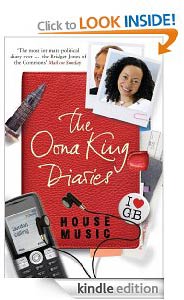That’s just some of what we get, and it already seems quite a bargain. Yet not long ago I heard someone saying:
“They come here, they take all the housing, they will not learn the language, they will not integrate. They should go back where they came from!”
This was a French person in Toulouse airport talking about all the Brits who’ve moved to France, especially those that have retired there.
My gran was one of those. She was born in 1908, left school when she was 13 and started work in a cigarette factory. It was her job to pick cigarettes off the conveyor belt, light them, and drag on them to check each batch was “drawing” properly. It was literally the definition of a dead-end job.
Two of her older brothers died in WW1, one of her younger brothers died in WW2 and when the war started she was left with two young kids, and basically didn’t see her husband for six years. Many people of her generation had the same experience.
And this is my point: you have to remember how much ordinary British people lost when Europe was at war. It’s one of the first things we forget. The price of Europe not being a union wasn’t 37p per day; it was incalculable.
It’s the human cost and human gains that are so often lost in the story of Europe today, so often air-brushed out of the narrative written by our mostly Eurosceptic press.
But back to my gran. When she moved to France, with my mum, she was 85 years old. Do you think she was going to learn French?
She was a Geordie with an Irish father and a Glaswegian mother. She was barely understood in England, never mind France. But although she couldn’t understand another European language, she could understand freedom of movement.
She could understand that her pension arrived in France without a problem. She could understand that her healthcare was sorted out. She could understand that her grand-daughter (me) could get a job in Belgium, and marry someone from a European country that was previously our enemy. She could understand that her grandson, my brother, never had to join the army and fight a war. All that she could understand. And she understood it was clearly worth more than 37p a day.
But what of my generation? What does European membership mean to me?
To me our EU membership is about whether my country has a future or not.
It’s about whether my kids have jobs or not.
It’s about whether we respond, credibly, to the shift of power from West to East that’s going on now.
And the shift of power isn’t just West to East. It’s from governments to corporations. It’s from formal states to informal extremist groups with unprecedented access to information, technology and social networks.
We face threats from terrorism, disease, climate change... Britain is far stronger and has far greater influence in tackling these challenges as part of the EU.
We in Britain make up 1% of the world’s population, yet our global footprint is exponentially larger. I am proud of British values – foremost among them tolerance and diversity – and I want those values to resonate around the world. Membership of the EU clearly amplifies our influence.
Make no mistake: The biggest threat to the prosperity of this country is nothing other than the threat to leave the EU.
And the alternatives we’re given? We’re told we could be like Norway or Switzerland.
Let’s remember two things:
- Norway is awash with oil
- Switzerland is a tax haven. Or it was a haven. It’s a bit less ‘haven’-like now.
Let’s not take refuge in delusion.
If my gran, who finally left the cigarette factory and became a dinner lady, could understand the benefits of Europe, then it’s time everyone else did. And we have to take this argument outside the Westminster village, beyond the think-tanks and the commentariat. We need dinner-ladies and hairdressers, teachers, small business workers and nurses – we need everyone to really consider what Europe is worth.
But we can only maintain Britain’s strength and influence by winning the argument. That’s why we need people like you to take up the argument, and explain to your friends and family why we should stay in a reformed Europe. It’s an argument we simply can’t afford to lose.
So, yes, let’s ask the price of the EU.
But as Oscar Wilde warned, let’s not be the cynic - the Eurosceptic - who knows the price of everything and the value of nothing. Let’s not carelessly throw Britain’s world influence onto the scrap heap. Its value is too great. Too high a price was paid. And once our global influence is gone, it will never return.



